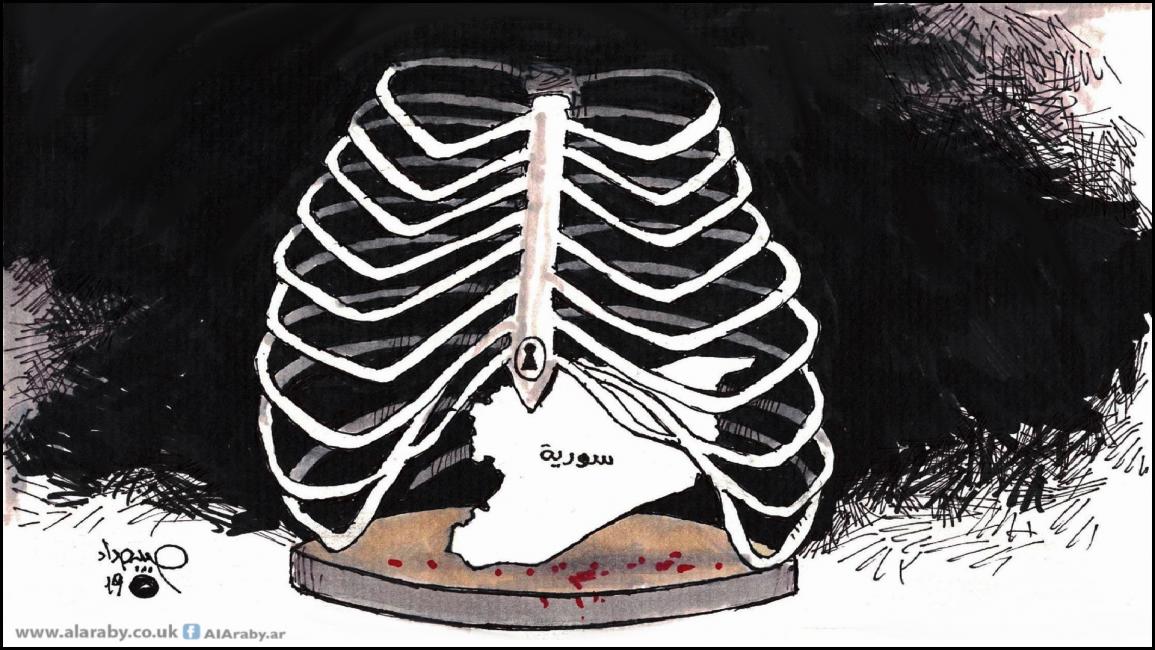In an acrobatic move, which raised a lot of bewilderment and wonder, the Syrian President, Bashar al-Assad, issued a new law criminalizing torture. This step has taken a surreal dimension at this time when the world is talking about the crimes of the Assad regime, enforced disappearance, torture, and rape in detention centers.
Almost every detainee in Syria has been subjected to torture, ranging from flogging with a quadrupole electric cable on their feet to the gravest forms of torture….
This law appears to be a ridiculous joke from a regime that does not know how to joke, as it was issued by a parliament that does not control itself…. It was passed as torture still prevails in prisons and detention centers. A few days ago, the regime killed the detainee Mahran Reda al-Khalaf, from Daraa, after detaining him for more than four years.
Contradictions
The law conflict with previous laws without explicitly stating, as it is supposed, that the new law annihilates all previous texts that contradict it. Article 16 of Legislative Decree 14 dated 25/1/1969 states, for example, that “It is not permissible to prosecute any of the employees of the administration (state security administration) for crimes they commit while carrying out the specific tasks entrusted to them or in the course of carrying out them except by virtue of a prosecution order issued by the Director.” Meanwhile, Article 74 of Legislative Decree 549 dated May 25, 1969 states, “No legal action may be taken against any State Security Department employee, those assigned or detailed to the department, or those contracted with it, for crimes incurred on the job… before referral to a department disciplinary board and before an order is obtained from the director.” The bizarre thing is that the two laws are in force without being published in the Official Gazette.
Unless the new law expressly states that every legal provision that preceded it and contradicts it is null and void, the new law will be nothing but shameless absurdity from a crude and insolent regime. Unless it is accompanied by vigorous efforts to reveal the fate of hundreds of thousands of detainees and forcibly disappeared persons and to know the truth, to apologize and compensate all survivors and families of the victims, and to open prisons and detention centers for international verification and verification committees, the law is not worth the paper it’s printed on.
The very same regime of Bashar al-Assad had signed the Treaty on the Prohibition of Torture in 2004, but that did not make it averse to killing thousands of Syrians in the basements of its intelligence branches. It had signed the Convention on the Protection of Children but buried children under the rubble in Aleppo, Homs, and Eastern Ghouta.
Read Also: Assad Regime Criminalizes Torture, Activists Call New Law ‘Black Comedy’
It will be difficult not to pay attention to the fact that the law’s passage came under changing and stormy Syrian, regional and international conditions that observers may not fully comprehend. Internally, the Syrians’ resentment against the regime is increasing, even among loyalists in its historical strongholds, due to inflation and the lack of services, including drinking water, electricity, and health care. We see an evident rise in discontent among Syrians in the regime-controlled areas, which prompted the latter to issue a cybercrime law to limit the right of Syrians to express this discontent in the virtual space.
Normalization
Meanwhile, we see that the two main sponsors of the regime are busy, each with his own problem. Russia has plunged itself, by invading Ukraine, into a quagmire from which it seems uneasy to get out. It is even withdrawing some of its forces from Syria to fight in Ukraine. Iran is preoccupied with its negotiations with the United States regarding the nuclear agreement, and we see a decline in its interest in the Syrian arena.
Washington, concurrently, reiterates that it will not normalize with the Syrian regime and has named March the month of accountability. Some European countries are determined to prosecute officials in the Syrian regime on charges of torture and other crimes against humanity, holding the entire regime accountable.
Can the issuance of the new law be interpreted as a proactive step for that? Or is it perhaps more related to the attempts to rehabilitate Assad led by Egypt, Algeria, and the UAE? Or maybe the two things are related to one another, and Assad’s recent visit to Dubai and Abu Dhabi, as well as the statements of the Secretary-General of the League of Arab States, Ahmed Aboul Gheit, are only two steps toward finding a solution based on “no winner, no loser” in Syria.
The world can think whatever it wants, and governments can plan however they like. However, most Syrians will not accept a solution that has been tried in Iraq, Lebanon, and other places and has proven its massive failure everywhere. The Syrians, for the most part, are still seeking a solution based on peace after answerability, reconciliation, and accountability concerning the significant perpetrators, and when the Syrians say “significant”, they most likely mean the ‘big ones.’ And thus far, they see in the issuance of the new law nothing but an acknowledgment by Assad that his regime has committed crimes against humanity, which cannot be forgiven by time and are not subject to the statute of limitations.
Wael Sawah is a Syrian activist, the Editor-in-chief of Syrian Observer, and a Member of the Advisory Board of the MEI Syria Program.
This article was translated and edited by The Syrian Observer.


